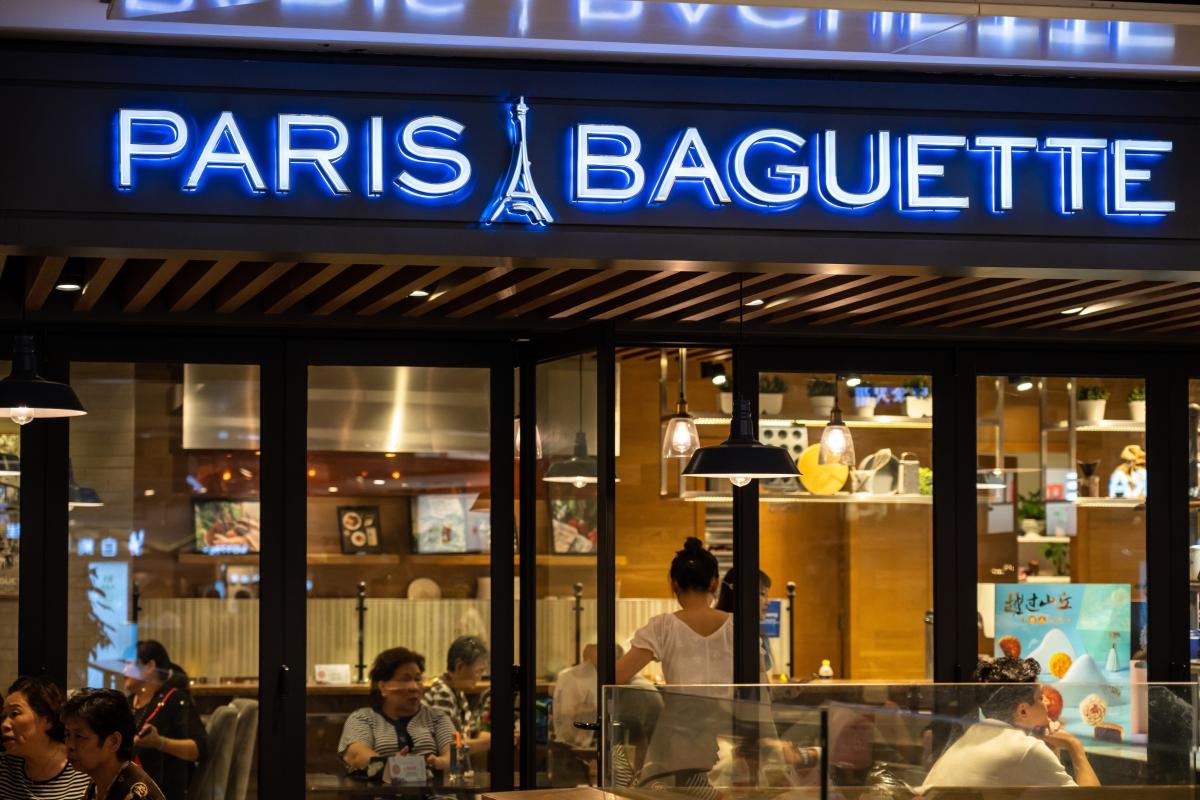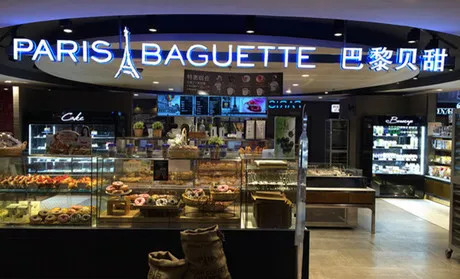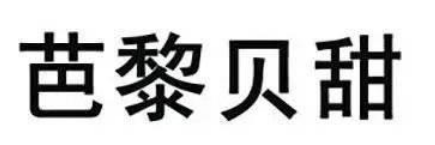Infringement of unregistered Well-Known trademark

Recently, the Beijing IP Court has recognized “PARIS BAGUETTE” and “巴黎贝甜” (“Ba Li Bei Tian”) as un-registered well-known trademarks on services for fast food restaurant.
Below are the trademark specimens of the two groups of trademarks that are of concern in this dispute.
| Paris Croissant Co. Ltd(Subsidiary: SPC Investment Limited Company)(herein refer to as the South Korean company) | Beijing Bali Beitian Enterprise Management Co., Ltd. |
|
(unregistered in Classes 30; 32 and 43) |
(originally registered in Classes 35; 40 and 43 and currently invalid) |
|
(registered in Classes 30 and 32; unregistered in Class 43) |
(registered in Classes 33; 35 and 43) |
The trademarks “巴黎贝甜” and “PARIS BAGUETTE” belong to a Korean-owned French-inspired bakery which has developed a reasonably big business in China and has attracted companies trying to leverage on its reputation. Among these, Beijing Bali Beitian Enterprise Management Co., Ltd. (Beijing Bali Beitian) is an enterprise management company that filed many copycats of the French company’s brand, including “芭黎贝甜” (“Ba Li Bei Tian”) and “BARIS BAGUETTE”. Even the name of Beijing Bali Beitian is a copycat of the Korea company’s brand.
Paris Croissant Co., Ltd. – however – has only partially succeeded in registering its trademarks in China. In 2007 Paris Croissant Co. Ltd. applied for the registration of the trademark 'PARIS BAGUETTE' in China and eventually obtained the registration in class 30 for bread and other similar goods and class 32 for juice and other goods. Unfortunately, Paris Croissant Co., Ltd. only owned the Latin letter trademark of 'PARIS BAGUETTE' in China, indeed the corresponding Chinese trademark "巴黎贝甜"(“Ba Li Bei Tian”) has never been approved for registration.

Source: SOPA Images/LightRocket via Getty Images
In January 2017, Beijing Bali Beitian filed an invalidation action to the Trademark Review and Adjudication Commission Board (TRAB, currently known as CNIPA) against Paris Croissant Co., Ltd.’s “PARIS BAGUETTE” trademark registration in Class 32 challenged the validity of the trademark “PARIS BAGUETTE” for lack of distinctiveness, for being misleading and for the illegal utilization of a famous geographic name.
Nevertheless, the TRAB thought that no matter the presence of the word "Paris" there are other elements in the trademark, that can distinguish it from the famous geographic place name as a whole. In addition, the trademark in dispute is not a sign of deception, nor harmful to the country moral trend or has other adverse effects.
Not satisfied with the decision of the TRAB, Beijing Bali Beitian brought the case to Beijing IP Court in August 2018, requesting the court to revoke the TRAB ruling and declaring the invalidity.
In the invalidation litigation, the Beijing IP Court surprisingly accepted the request of the Beijing company. It held that the disputed trademark is composed of English words 'PARIS' and 'BAGUETTE' and a figure similar to the iconic Eiffel Tower in Paris, France, among which 'PARIS' means Paris and 'BAGUETTE' means French bread or French-style baguette. The use of the trademark on the designated class of goods may easily cause the relevant public to mistakenly believe that the origin of the goods is related to Paris, France.

Source: Baidu
The court held that the trademark in question shall not be allowed to be registered as a trademark under the Chinese Trademark Law.
Then, both the CNIPA and the Korean company decided to appeal the case to the Beijing Higher People's Court (the higher court). The higher court held that the disputed trademark is composed of “PARIS” + “BAGUETTE” + a figure. Although “Paris” is a famous French city among the public, the meaning of “BAGUETTE” is not familiar among relevant Chinese consumers.
Considering that there is also a figurative logo in the disputed trademark, the overall appearance of the disputed trademark is different from a place name. In addition, based on the taste, flavor, short shelf life and other characteristics of the designated goods (juice, etc.) of the trademark, the public will not associate the "PARIS" in the trademark with the origin of goods.
Thus, the disputed trademark is not in violation of Articles 10.2 and 10.1.7 of the trademark law.
Consequently, the Higher Court decided to revoke the 2nd instance judgment. The trademark “PARIS BAGUETTE” (in Class 32) should be maintained for registration.
In 2018, the South Korean company brought the trademark infringement and unfair competition case to Beijing IP Court. According to the large amount of evidence submitted by the Plaintiff, the Court considered that Paris Baguette’s advertising and its regional influence have made the brand an unregistered well-known trademark for fast food restaurant services.

Source: Baidu
Beijing Bali Beitian highlighted the trademark “PARIS BAGUETTE” on various platforms, including its wechat account and official website, which is enough to cause confusion to the public.
Also, Beijing Bali did not use the trademark on the approved commodities and tried to sell the trademark for 10 million RMB.
After the South Korean company refused to pay, Beijing Bali sent warning letters to Paris Baguette’s franchisees, filed complaints to MSA and initiated lawsuits etc., which seriously disturbed the normal operation of the stores. Such behaviours were found as an attempt to force the plaintiff to purchase the defendants’ registered trademarks.
In addition, when the defendant Beijing Bali Beitian was established, the plaintiff's unregistered trademarks "巴黎贝甜" and "PARIS BAGUETTE" had a high reputation in fast food restaurant services, and the defendant's trademark "芭黎贝甜" was highly similar to the plaintiff's unregistered trademark "巴黎贝甜" in terms of text composition and pronunciation, which was likely to cause confusion and misunderstanding among the relevant public and violated the provisions of Article 6 of the Anti-Unfair Competition Law.
The court ordered the defendants to cease using the non-registered, well-known mark 巴黎贝甜 and the trade name 芭黎贝甜, and to stop practicing malicious harassment and violating the Anti-Unfair Competition Law.
The defendants were also ordered to pay a compensation of 1.5 million RMB (US $230,000) for the damage loss and reasonable expenses.The defendants have filed an appeal to the higher court. On May 24th 2021, the Beijing Higher People's Court held the hearing, however the judgement has not been issued yet.




